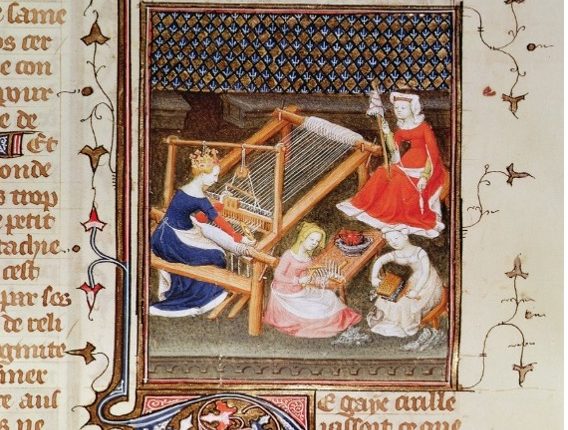
The UCLA CMRS Center for Early Global Studies, in partnership with the Department of European Languages and Transcultural Studies, the Franklin D. Murphy Chair in Italian Renaissance Studies, the Wellman Chair in Medieval History, and the Italian Institute of Culture of Los Angeles, invites you to submit a proposal for 20-minute presentations at the International Conference On Land and Across the Sea: Boccaccio’s Other Wor(l)ds. Junctions and Interweavings
The conference will occur in person on the UCLA campus from October 3 to 4, 2025, at the stately Royce Hall.
To mark 650 years since Boccaccio’s death, a conference on Boccaccio’s Other Wor(l)ds invites exploration of Boccaccio’s “Other Words” and “Other Worlds.” Boccaccio’s narratives—not limited to the Decameron—vividly depict cultural and intellectual exchanges, emphasizing human behavior, morality, and societal complexities across the Mediterranean and beyond, including Cathay. In the Decameron, the Levant serves as a crucial geographical and cultural reference, highlighting its role as a crossroads of commerce, religion, and cultural interaction. For instance, Nathan’s house in Decameron X.3 is described as being situated at the crossroads “from the West eastward, or from the East westward.” Similarly, in Genealogy of the Pagan Gods, Boccaccio extols the invention of the boat and maritime navigation, celebrating their benefits for humanity. He reflects on the immense advantages of trade and cultural exchanges and how they foster trust and friendships. Boccaccio notes that such interactions enable mutual teaching and learning of languages, bridging geographical distances and overcoming estrangement.
Inspired by Boccaccio’s fascination with other worlds and words, the Conference encourages geocritical approaches to Boccaccio’s works and explores this “hybrid point of connectivity” across society, politics, gender, religion, and economics. It aims to further investigate labor conditions and slavery in the medieval Mediterranean, with particular attention to the art and commerce of textiles and textual weaves. The focus extends from the silent labor of women weaving baskets across the Mediterranean basin to female textile workers in Florence, highlighting references to women’s labor both within and beyond the sea.
We seek collaboration among scholars from disciplines beyond traditional Boccaccio studies, including economics, anthropology, Middle Eastern, and gender studies. By fostering an interdisciplinary approach, particularly among younger scholars, the Conference aims to cultivate a vibrant community of diverse competencies. Through its focus on Boccaccio’s depictions of trade and cross-cultural exchanges, this gathering aspires to stimulate multidisciplinary dialogue on the enduring legacy of Boccaccio’s portrayal of a dynamic, interconnected Mediterranean world characterized by trust and friendship through trade, violence, and slavery.
Early-career scholars will receive complimentary lodging for two nights, and all participants will receive meals and refreshments throughout the conference.
For consideration, please send a title and 200-word abstract by March 1, 2025, to Roberta Morosini, rmorosini@ucla.edu.
Acceptances will be sent by April 1, 2025

